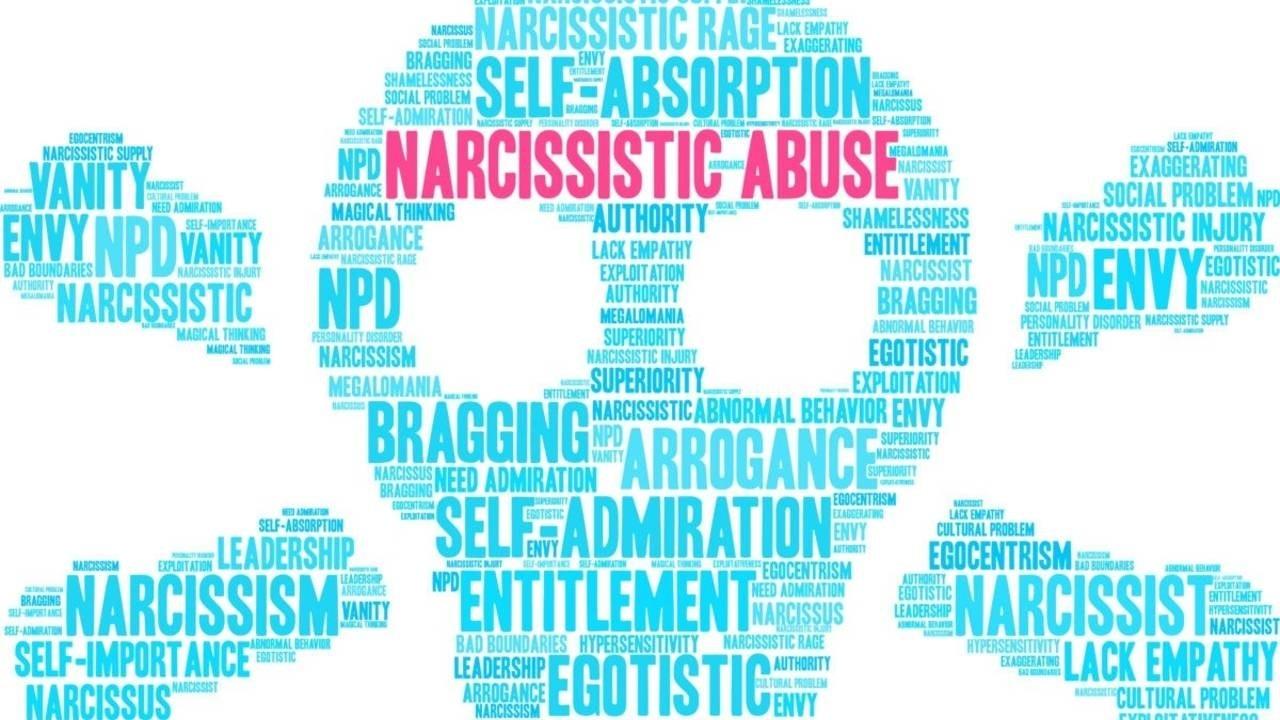Did you grow up with a 'narc'?

"For the first time, I understood what psychological abuse was, and how ‘victims’ are terrified of leaving their abuser… because of the terror from childhood which was still inside me".
Exploring Narcissism (part 1)
Growing up
I grew up with a narcissistic mother, but (as is very common) did not know it at the time. In fact it wasn't until I was about 12, when I heard a school friend describing her relationship with her mother, that I even started to question perhaps my mother wasn’t quite as nice or 'normal’ as I had thought. Because whatever we grow up with, we think it's normal.
I hated living at home, and asked to go to boarding school around at the age of 13 years. I had had enough of the constant abuse, being hit, punished, humiliated, and the general meanness and unkindness. I didn’t understand what was happening, but I knew I was unhappy, and I just couldn’t put up with it anymore. The isolation and loneliness were unbearable. I remember the only ‘person’ I could talk to and who listened to me was our family dog. Fortunately some bigger part of me guided me to ‘get the hell out of there’, and miraculously my parents agreed to send me to boarding school.
Essentially we could say I left home at 13. As much as I could, I would avoid coming ‘home’ for holidays: I would make up reasons why I could not go home for weekend ‘exeats’ or half terms. Once I went to university, I would stay on campus for the holidays or go overseas to work. Home just wasn’t a fun place and I didn't want to be there.
In my late 20’s I developed depression, and as soon as I started counselling discovered I hadn’t been as happy as I thought I was as a child. Yes, I sort of knew I was unhappy, but not that unhappy. After all, I enjoyed school, sports, my friends… I thought I was doing ok. But the depression (de-pressing of unhappy emotions and unresolved hurts) said otherwise.
Starting counselling opened up a can of worms, and the depression went from mild to medium to clinical, and I found myself in hospital with a 'nervous breakdown'. As I later found out, this was actually a very positive thing, as my old mental concepts were literally ‘breaking down’ so that a new consciousness could take its place. A mental breakdown is literally a breakdown and breakthrough to a new level of mental functioning, but I didn’t know that at the time, and it took about 7 years to work out what had happened.
Recreating the same in relationships
At the same time I found myself in a narcissistic relationship. At first the guy seemed ‘too good to be true’ – and as it turned out he was. But I didn’t understand what was happening to me. I just knew that it ‘didn’t feel right’ – one moment he’d be ‘Mr Nice’ and then the next moment, out of no-where, he’d be ‘Mr Nasty’. It was like living with Jekyll and Hyde. I couldn't sleep, was always anxious, second-guessed myself all the time, felt overwhelmed and confused, and nothing I did was ever good enough.
By chance (there is no chance) I found the book ‘Men who hate women and the women who love them’ and it changed my life. It was like I reading about myself in the book and for the first time I understood what psychological abuse was, and how ‘victims’ are terrified of leaving their abuser… because of the terror from childhood which was still inside me.
But eventually I had my ‘last-straw moment’ and I got away. It wasn’t easy, because co-dependent dysfunctional relationships keep you trapped like glue. For a whole year I wanted to go back to him, and I had to use every ounce of will power not to. I even took myself to the other side of the world so as to be far enough away not to give in to the temptation of him calling me back, telling me ‘he’d do anything, he’d change’. But by then I knew his words were empty and he never would.
Getting Sick
In my 30’s, despite having ‘worked’ on myself through self-development workshops and counselling, I was diagnosed with chronic fatigue syndrome (CFS) and found myself bedbound and housebound on and off for the next 10 years. As I was to discover, the chronic fatigue was a ‘chronic blocking of emotional energy’ (aka emotional pain) which had become so ‘chronic’ it was causing 'chronic fatigue'. This was a light-bulb moment. From that moment on, I committed and dedicated myself to healing emotional pain and clearing emotional toxins from inside of me. I studied everything I could on the subject, inadvertently training to professional level in several emotional healing techniques.
After 10 years I could finally say I was 95% symptom-free (of CFS and depression, plus other associated symptoms such as allergies, asthma, back-pain and more – all emotionally-driven), and started to help others heal their physical symptoms by healing their emotional lives.
For the next 13 years I helped hundreds of clients heal themselves from chronic illnesses (chronic fatigue, fibromyalgia, irritable bowel, anxiety, depression), and a whole host of other complex ‘syndromes’ which doctors said were ‘incurable’, only because they didn’t understand the connection between childhood trauma, emotional pain and physical symptoms.
In every single case of working with a client, the root cause was always the same: unresolved emotional trauma. In virtually every case, the client had grown up with a narcissistic parent or caregiver. The root cause was always the same, which meant the solution was too.
I taught them how to take better care of themselves, value themselves, say yes to themselves. They learned how to communicate their emotions honestly, speak their truth, stand up for themselves, say no, create clear boundaries, be authentic, and a whole host of other strategies for self-healing and reclaiming their life. I helped people dealing with bullies and narcissists at home and at work: partners, parents, children, bosses, colleagues… they come in all shapes and sizes.
I can honestly say that helping people take back their power is the most rewarding thing I have done. It’s a necessity if we have been treated unfairly as a child or continue to be so now (which will be the case if we have not dealt with our past).
I could write a lot more, but the most important thing is to understand that that the first key to managing narcissistic people is to recognize what is happening in the first place, because initially we will not understand what is going on, due to our own confusion, low self-worth and self-doubt.
The good news is we can turn all of this around with the right guidance and support.
Getting Help
If you want to know more or get help here are some relevant links:
Understanding Narcissism Summit November 2019
20 speakers talk on narcissism - a fascinating event.
Overcoming Loneliness program
How to deal with and overcome loneliness
Emotional Empowerment program
Everything you need to take back your power, create healthy boundaries, say yes to you and no to others.
Overcoming Depression program
How to clear the emotions which hide behind depression.
Overcoming Narcissism - Take Back Your Power
Plus, if you are signed up to the enews, be the first to hear of my 'Overcoming Narcissism - Take Back Your Power' program coming soon.
You can sign up to the enews on the home page or below or when you sign up for any online program.
Stay connected with news and updates!
Join the EAA enews list to receive the latest updates with details of free trainings and online programs.
Don't worry, your information will never be shared and you can unsubscribe at any time.


